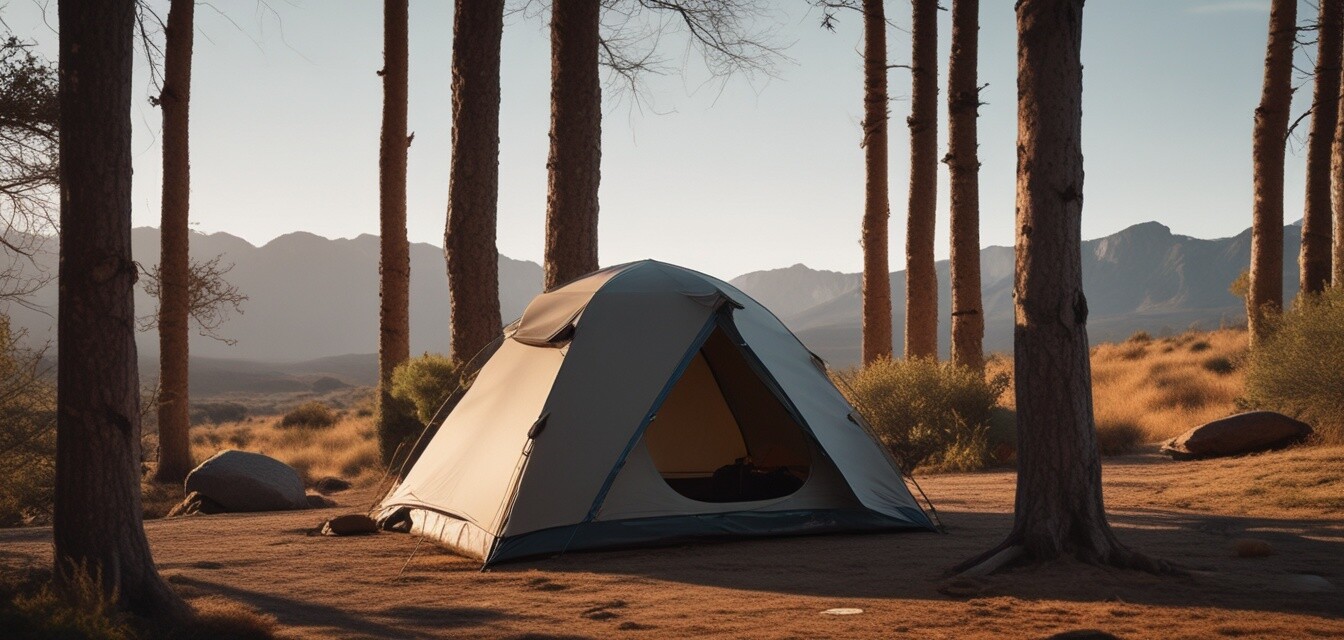
The Shift Towards Minimalist Camping
Key Takeaways
- Minimalist camping focuses on simplicity and essential gear.
- Choosing lightweight, multifunctional gear enhances the outdoor experience.
- This lifestyle encourages a deeper connection with nature.
- It promotes sustainability by reducing waste and consumption.
- Planning and organization are crucial for a successful minimalist camping trip.
Camping has long been a cherished pastime for many, but a new trend is emerging that is turning conventional camping on its head. The shift towards minimalist camping emphasizes simplicity, essential gear, and a deep connection with nature. This article will explore how beginners can adopt this lifestyle to simplify their outdoor experiences. Let's dive deeper into the essentials of minimalist camping.
What is minimalist camping?
Minimalist camping is about focusing on the essentials while eliminating unnecessary gear. It encourages campers to reevaluate what they truly need for an outdoor adventure. Instead of hauling bulky equipment, minimalist campers select lightweight, multifunctional choices that streamline their experience. This new approach leads to more freedom and a deeper connection with the environment.
The Benefits of Minimalist Camping
Adopting a minimalist camping style has several benefits that can enhance your overall experience. Here are some key advantages:
- Lightweight and easy to carry: You’ll find that traveling with less gear makes hiking and setting up camp much easier.
- Cost-effective: Investing in high-quality, multifunctional gear may save money in the long term as you won’t need to buy multiple items.
- Fostering a connection with nature: Without distractions from extra gadgets, you can immerse yourself in your surroundings.
- Eco-friendly: Carrying less gear often means producing less waste, enhancing your eco-conscious camping practices.
Essential Gear for Beginners in Minimalist Camping
For beginners looking to embrace minimalist camping, choosing the right gear is key. Below is a table highlighting the essential items to consider:
| Gear | Description | Purpose |
|---|---|---|
| Tent | A lightweight, easy-to-set-up shelter. | Provides protection from the elements. |
| Sleeping bag | Compact, suitable for predicted temperatures. | Offers comfort and warmth during sleep. |
| Stove | Simple and efficient cooking system. | Allows for meal preparation without heavy equipment. |
| Backpack | Lightweight with sufficient capacity to carry essentials. | Facilitates easy transport of gear. |
| Multi-tool | A versatile tool that includes multiple functions. | Solves various problems with one handy item. |
Tips for Planning Your Minimalist Camping Trip
Beginner's Tips
- Research your destination to understand its terrain and requirements.
- Create a checklist of essential gear and stick to it.
- Practice setting up your camping gear at home before your trip.
- If possible, find a camping buddy to share experiences and gear.
- Be mindful of your environmental impact; follow Leave No Trace principles.
How Technology Meets Minimalism in Camping
Interestingly, technology is playing a crucial role in this minimalist trend. Innovative gear designs and smart equipment now provide solutions to camping challenges without the excess bulk. Here are some ways technology complements minimalist camping:
- Portable solar panels: Keep your devices charged without needing multiple batteries.
- Smart water filtration systems: Compact solutions that allow for easy access to clean water.
- Navigation apps: Help in planning routes and finding campsites while reducing the need for paper maps and compasses.
Embracing a Sustainable Camping Lifestyle
Minimalist camping promotes not only personal simplicity but also a sustainable lifestyle. By being mindful of your gear and the environment, you can significantly reduce your ecological footprint. Here are a few practices to consider:
- Choose eco-friendly products and gear.
- Opt for biodegradable soaps and toiletries.
- Carry reusable containers to minimize waste.
- Follow local regulations regarding campfires and waste disposal.
- Share your camping experience to inspire others to adopt sustainable practices.
Conclusion
The shift towards minimalist camping is more than just a trend; it's a lifestyle that resonates with those looking to simplify their outdoor experiences. As you embark on your minimalist camping journey, remember the essence lies in connection: with nature, your gear, and yourself. For more detailed information about camping gear and techniques, check out our other articles on camping tips and tricks and safety and navigation gear. Embrace the adventure that minimalist camping offers, and enjoy your outdoor experiences!